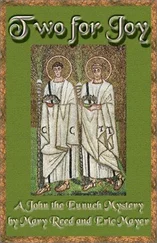Evgeniy Terekhin - Answers for a Jew
Здесь есть возможность читать онлайн «Evgeniy Terekhin - Answers for a Jew» — ознакомительный отрывок электронной книги совершенно бесплатно, а после прочтения отрывка купить полную версию. В некоторых случаях можно слушать аудио, скачать через торрент в формате fb2 и присутствует краткое содержание. ISBN: , Жанр: Религиозная литература, Публицистика, Прочая документальная литература, на английском языке. Описание произведения, (предисловие) а так же отзывы посетителей доступны на портале библиотеки ЛибКат.
- Название:Answers for a Jew
- Автор:
- Жанр:
- Год:неизвестен
- ISBN:9785449036384
- Рейтинг книги:3 / 5. Голосов: 1
-
Избранное:Добавить в избранное
- Отзывы:
-
Ваша оценка:
- 60
- 1
- 2
- 3
- 4
- 5
Answers for a Jew: краткое содержание, описание и аннотация
Предлагаем к чтению аннотацию, описание, краткое содержание или предисловие (зависит от того, что написал сам автор книги «Answers for a Jew»). Если вы не нашли необходимую информацию о книге — напишите в комментариях, мы постараемся отыскать её.
Answers for a Jew — читать онлайн ознакомительный отрывок
Ниже представлен текст книги, разбитый по страницам. Система сохранения места последней прочитанной страницы, позволяет с удобством читать онлайн бесплатно книгу «Answers for a Jew», без необходимости каждый раз заново искать на чём Вы остановились. Поставьте закладку, и сможете в любой момент перейти на страницу, на которой закончили чтение.
Интервал:
Закладка:
Both the Greek text of the Gospel and the Greek translation of Is 7:14 use the same word παρθένος (virgin). This is how the Hebrew word “alma” is translated in both cases. One can certainly argue about the nuances of translating “alma” as “maiden” or “virgin”, but in reality, there is not much semantic difference between the words “maiden” and “virgin”. Practically, they are the same. To limit the translation of the word “alma” to “a young woman” is a later invention of Judaism, which has very little in its favor.
The Septuagint is a Greek translation of the Old Testament ordered by Ptolemy II Philadelphus, the king of Egypt, in the 3rd century BNE. This translation was completed by 72 Jewish scribes; thus, each Semitic tribe was represented by 6 people. The Septuagint translates “alma” as παρθένος. It makes perfect sense to trust the ancient Jewish scholars who certainly knew how to translate “alma”, and had no reasons to distort the meaning of the prophesy.
Some interpret the prophesy from the first book of Moses in much the same way: “And I will put enmity between thee [great dragon was cast out, that old serpent, called the Devil, and Satan (Rev 12:9)] and the woman, and between thy seed and her seed; it shall bruise thy head, and thou shalt bruise his heel” (Gen 3:15), so the Victorious One who will defeat the Devil will be born without the seed of a man.
Besides, Mary’s eternal virginity is also based on Ezekiel’s prophecy: “Then said the LORD unto me; This gate shall be shut, it shall not be opened, and no man shall enter in by it; because the LORD, the God of Israel, hath entered in by it, therefore it shall be shut” (Ezek 44:2).
Does Jesus fulfill the prophecies about Messiah?
Question: According to prophecies, the Jews will prosper under Messiah. But it wasn’t so in the days of Jesus. Is there at least one prophesy about Messiah that was fulfilled in Jesus?
Answer: “When John [the Baptist] had heard in the prison the works of Christ, he sent two of his disciples, and said unto him, Art thou he [Messiah] that should come, or do we look for another? Jesus answered and said unto them, Go and shew John again those things which ye do hear and see: The blind receive their sight, and the lame walk, the lepers are cleansed, and the deaf hear, the dead are raised up, and the poor have the gospel preached to them. And blessed is he, whosoever shall not be offended in me” (Mt 11:2—6; compare Lk 7:19—23).
The Jews received from Jesus many blessings. Do they have a reason to be unhappy about not receiving more blessings, considering the fact that it was Jewish leaders who gave over their Benefactor to be crucified?
At the same time, there were many godly Jews who accepted Jesus as Messiah. Some of them had a direct revelation from God about Him, like the shepherds from Bethlehem (see Lk 2:8—20), Simeon the Prophet, and Anna the Prophetess (see Lk 2:21—38). Others saw in Jesus the fulfilment of the Old Testament prophecies (see Jn 1:45).
Daniel details the time of the coming of the Messiah: “Seventy weeks are determined upon thy people and upon thy holy city, to finish the transgression, and to make an end of sins, and to make reconciliation for iniquity, and to bring in everlasting righteousness, and to seal up the vision and prophecy, and to anoint the most Holy. Know therefore and understand, that from the going forth of the commandment to restore and to build Jerusalem unto the Messiah the Prince shall be seven weeks, and threescore and two weeks: the street shall be built again, and the wall, even in troublous times. And after threescore and two weeks shall Messiah be cut off, but not for himself” (Dan 9:24—26).
According to Dan 9:25, “from the time the word goes out to restore and rebuild Jerusalem until the Anointed One, the ruler, comes, there will be seven ‘sevens’, and sixty-two ‘sevens’”: (7+62) *7=483 years. The decree about restoration of Jerusalem was passed by Artaxerxes Longimanus, the king of Persia, around the year of 457 BNE. Adding 483 years (69 “sevens”) brings us to 27—28 NE. On the whole, this dating fits well with the testimony of Luke about the time when the ministry of Jesus Christ began “in the fifteenth year of the reign of Tiberius Caesar” (Lk 3:1).
The dating of the coming of the Messiah is also foreshadowed in the first book of Moses: “The sceptre shall not depart from Judah, nor a lawgiver from between his feet, until [Peacemaker] come; and unto him shall the gathering of the people be” (Gen 49:10; compare 1 Kings 2:4; Ps 132:11).
This prophecy has several possible interpretations. They acknowledge the loss of the “scepter of Judah” as something that has already happened; the only difference is in the timing of the loss. Let’s analyze some of the most common interpretations.
One version sees the loss of the “scepter of Judah” in the interrupted reign of the kings of Judah. This happened in 37 BNE when Herod the Great, an Edomite, was enthroned in Judah. Jesus Christ was born precisely during Herod’s reign: “Jesus was born in Bethlehem of Judaea in the days of Herod the king” (Mt 2:1; compare Lk 1:5). Notably, his birth was recognized by the Jewish teachers of the Law and Herod himself as the coming of the Messiah (see Mt 2:1—8). It should also be noted that there was a Herodian sect in Israel at that time; they saw king Herod as the Messiah (see Epiphanius of Salamis, Panarion, 20). Herod must have encouraged such hopes, and initiated the reconstruction of the Temple in Jerusalem. Seen from this perspective, Herod’ worry about the birth of Jesus (see Mt 2:3) and the subsequent massacre of the innocents (see Mt 2:16—18) makes perfect sense.
According to the second version, the “scepter of Judah” was lost when the kingdom of Judah was divided after the death of Herod the Great. The third version connects it with Judah becoming a Roman province in 6 NE. Both events fall within the lifetime of Jesus.
The fourth version connects the loss of the “scepter of Judah” with the loss of power by the Jewish leaders: “When the member of the sanhedrin saw that they were deprived of authority over life and death, they were overcome by great fear and despair. Putting on sackcloth and ashes they exclaimed: ‘Woe to us! The ‘scepter of Judah’ has departed, but the Messiah has not come!’” (Rabbi Rahmon, quoted in Eg.Fred.John Meldau “Messiah in Both Testaments”). According to Talmud, the sanhedrin was deprived of the authority to pronounce death sentences 40 years before to the destruction of the Temple in Jerusalem (see Avodah Zarah, 8b), which would place it around 30 NE. The Gospel confirms it: “Then said Pilate unto them [sanhedrin], Take ye him [Jesus], and judge him according to your law. The Jews therefore said unto him, It is not lawful for us to put any man to death” (Jn 18:31).
The prophecy about the “scepter of Judah” has the following continuation: « [Messiah] binding his foal unto the vine, and his ass’s colt unto the choice vine; he washed his garments in wine, and his clothes in the blood of grapes: His eyes shall be red [shiny] with wine, and his teeth white with milk” (Gen 49:11—12).
It predicts, first of all, how Christ will enter Jerusalem: “And when they drew nigh unto Jerusalem, and were come to Bethphage, unto the mount of Olives, then sent Jesus two disciples, Saying unto them, Go into the village over against you, and straightway ye shall find an ass tied, and a colt with her: loose them, and bring them unto me. And if any man say ought unto you, ye shall say, The Lord hath need of them; and straightway he will send them. All this was done, that it might be fulfilled which was spoken by the prophet [Zechariah], saying, Tell ye the daughter of Sion, Behold, thy King cometh unto thee, meek, and sitting upon an ass, and a colt the foal of an ass [Zech 9:9]. And the disciples went, and did as Jesus commanded them, And brought the ass, and the colt, and put on them their clothes, and they set him thereon. And a very great multitude spread their garments in the way; others cut down branches from the trees, and strawed them in the way. And the multitudes that went before, and that followed, cried, saying, Hosanna to the Son of David: Blessed is he that cometh in the name of the Lord; Hosanna in the highest” (Mt 21:1—9; compare Mk 11:1—11; Lk 19:29—44; Jn 12:12—19).
Читать дальшеИнтервал:
Закладка:
Похожие книги на «Answers for a Jew»
Представляем Вашему вниманию похожие книги на «Answers for a Jew» списком для выбора. Мы отобрали схожую по названию и смыслу литературу в надежде предоставить читателям больше вариантов отыскать новые, интересные, ещё непрочитанные произведения.
Обсуждение, отзывы о книге «Answers for a Jew» и просто собственные мнения читателей. Оставьте ваши комментарии, напишите, что Вы думаете о произведении, его смысле или главных героях. Укажите что конкретно понравилось, а что нет, и почему Вы так считаете.












